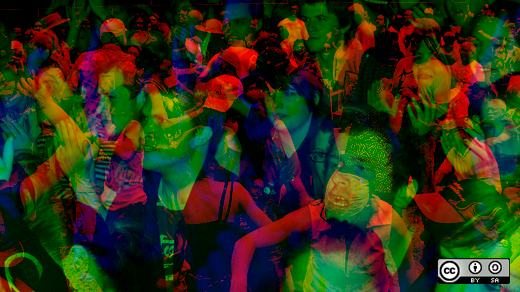I’m feeling a little nostalgic. Reading Amazon’s announcement about the recent Cloud Drive music service, I immediately thought of quite a few other moments where the music industry provoked a sense of overwhelming... disappointment.
They just don’t get it.
They. You know, The Music Industry. Sony. Metallica. Lars Ulrich. The RIAA.
What don’t they get?
I’m not sure exactly. I think their role was unique to a time and place. In an era where recording equipment and studios and musical talent with the drive to produce were all rare things (or at least rare in full complement), and they could command a ludicrous fee from artists for producing and publicizing musical performance. All forms of publishing used to be this way. A format that--simply because of technological lack--left publishers in nearly complete control. 8-tracks and vinyl were pretty secure. Cassettes a bit less so. And thus the first of many disappointments.
Mix tapes. We all made them. Swapped them. Taped stuff from the radio, or used our dual-deck boomboxes to crib one from another. Did cassettes ruin the music industry? No. Is it much different from trading an MP3? In a practical sense, nope. Technically--in terms of sound quality, reproducibility--yes. But sociologically? No. Hard to make something a crime that’s been a part of the teenage social contract for several generations.
And here’s the deal: People are still buying music. It didn’t stop us, then--you had to have enough of your favorite albums to be able to make a good mix tape, so you bought the things you liked. Or as many of them as you could on a teenager’s allowance. And the same is true today--you might hear something new on pirate radio, or from a friend sharing a quick YouTube video... but if you like it, you’ll download it from the artist or from Amazon or stop and pick up the whole album.
Logic dictates--if you want an artist you like to keep making music? You should probably pay them for the music they make. Pretty simple. (And the people who don’t have money to buy music aren’t buying music anyways.)
CD sales are down, sure, but online music sales are booming. iTunes has a substantial chunk of the music market, and Amazon’s made good with their MP3 sales. And it’s difficult to really count the number of artists--the long tail--that are selling self-produced wares online or completely independently.
And now Amazon has added a new enticement--online storage and playback from their cloud. But here’s the kicker: They didn’t get license approval from the music industry.
Bold move.
“We don't believe we need licenses to store the customers' files. We look at it the same way as if someone bought an external hard drive and copy files on there for backup,” said Craig Pape, Amazon’s director of music.
It stands to reason--the technology makes perfect sense. One of the primary uses of cloud architectures--virtualized shared computing space--is storage. Most simply: you can put stuff there. For a very broad definition of stuff. And get to it from virtually anywhere. (Quite literally, virtually.) And that’s the appeal.
We’ve moved from carrying our huge boom boxes, to Walkmans, to iPods and MP3 players, to integrated devices--phone, music, internet connection, all in one. The next logical step is to pool that data, access it from multiple even-more-common devices. Your alarm clock. Your home and work computers. Your mobile devices.
Technology converges.
"We are keeping our legal options open,” said a Sony spokeswoman in the Wall Street Journal, in response to Amazon’s announcement.
Record companies and the Recording Industry Artists of America (RIAA) have been quite behind the curve--unprepared for the rapidity with which filesharing took off, the speed of hardware and the quick ascent of storage space and compression technologies (and descent of cost) making it all the more accessible.
They’ve sued fans. Shut down filesharing services (Napster). Fought P2P collections or searches like Limewire and Muxtape and internet radio and music streaming. The crux of the argument there was that the music being shared was being shared illegally, being made available publicly or near-publicly.
Which makes what seems to be happening here all the more interesting. I do not think that Sony and their ilk would be, shall we say, opposed to having one giant virtualized pool of everyone’s music resources. One place where you stored every music file you owned? That would make it eerily simple to monitor music consumption. To identify misappropriation.
The problem is that the major music labels do not own Amazon’s pool, and they don’t have means to see inside it. Google and others, it’s been suggested, were in talks with the labels to negotiate terms for very similar technologies. Licensing terms could kick back for music stored, monetarily and--most likely--in data and assurances. In addition to the fees they already paid for music sold.
How far does the label’s ownership of digital media go? What happens when our music stream becomes just another part of our virtual jetsam, something that friends can access as easily as they can see our marital status and last update on Facebook?
There’s plenty of questions, and Amazon is pushing to have some of them answered:
1. What do you own when you buy music? One digital copy? The right to listen to that digital copy? The right to copy that digital copy for your own personal use? The right to store it, but where?
2. Does storage constitute ownership? Does mass file storage constitute sharing?
3. Why is one form of sharing ok (playing a song for a friend, locally) but another is not (playing a song for a friend, over a distance, using a third-party storage mechanism to do so)? Does the ability to do this drastically lower the likelihood of legal purchase?
At opensource.com, we like technology. We like openness. We like the freedom to share and the fairness of reciprocating or rewarding hard work. We don’t like the idea of companies encumbering intellectual--or artistic--property with restrictive licenses and mechanisms of control that prevent growth--or advancement.
Is what Amazon’s doing fair? What is the record industry going to have to do, to adjust to this next leap forward in technology? Can they adjust? Will it require a legal decision to set precedence?
I’m quite curious to see how this shakes out. I think it has repercussions for all communities that deal with intellectual property, license, and ownership. What do you think?
Read more
- Amazon in big push to clinch music deals (Wall Street Journal)
- Amazon’s director of music talks cloud drive: "We don’t believe we need licenses" (Billboard)
- Amazon’s cloud storage gets negative response from labels (Rolling Stone)
- Music industry will force licenses on Amazon Cloud Player or else (Ars Technica)







1 Comment